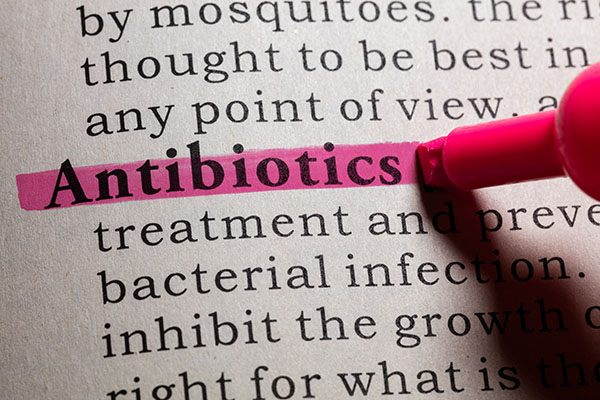Gut health crisis: How antibiotics, the Western Diet and hyper-sanitized environments are fueling a surge in childhood inflammatory bowel disease
09/15/2025 / By Evangelyn Rodriguez

- Children under five given antibiotics face 3x higher IBD risk. Early antibiotic use permanently disrupts gut microbiome diversity, promoting inflammation.
- High-sugar, low-fiber Western diets starve beneficial bacteria, fueling IBD risk. Whole foods (vegetables, omega-3s, fiber) protect gut health.
- Wealthier children face 65 percent higher IBD risk due to hyper-sanitized lifestyles, while pet exposure and having siblings strengthen microbiome resilience, giving credence to the hygiene hypothesis.
- Secondhand smoke exposure has pro-inflammatory effects on intestinal tissue and doubles IBD risk.
- Limit antibiotics use, prioritize whole foods, allow outdoor and pet exposure, avoid secondhand smoke and consider supplementing with probiotics and polyphenols. Early diet and lifestyle changes help prevent IBD.
A troubling rise in inflammatory bowel disease (IBD) among children is raising alarms among medical researchers, who warn that early exposure to antibiotics, ultra-processed foods and overly sterile environments may be altering young gut microbiomes permanently—with lifelong consequences. Findings presented at Digestive Disease Week (DDW) 2023 reveal that children under five who take antibiotics face three times the risk of developing IBD, while those prescribed four or more courses see their risk climb even higher. Meanwhile, diets heavy in sugar and processed foods — hallmarks of the Western Diet — are further destabilizing intestinal health, even as higher socioeconomic status, long assumed to be protective, appears to increase vulnerability to the disease.
The study, led by gastrointestinal dietitian Nisha Thacker, analyzed data from 36 observational studies encompassing 6.4 million children worldwide. Its conclusions challenge conventional wisdom on health disparities: Wealthier children, despite better access to health care, are now at greater risk — a paradox researchers attribute to overuse of antibiotics, hyper-sanitized lifestyles and nutrient-poor diets. The findings arrive as pediatric IBD cases surge globally, with the incidence of IBD in children and adolescents increasing by 22.8 percent from 1990 to 2019. Experts warn the trend threatens not only childhood quality of life but also growth, puberty and long-term metabolic health.
Antibiotics: A double-edged sword with lasting consequences
Thacker’s meta-analysis confirmed what smaller studies have long suggested: Early antibiotic exposure disrupts the developing gut microbiome, a delicate ecosystem critical to immune function. Children given antibiotics before age five were three times more likely to develop IBD later in childhood, while those who received four or more courses had a 3.5 times higher likelihood.
While antibiotics can save lives, their overuse — particularly in early childhood — may reprogram the gut in ways that researchers are only beginning to understand. Antibiotics indiscriminately wipe out both harmful and beneficial bacteria, leaving the intestinal lining vulnerable to chronic inflammation. Pediatricians have long cautioned against unnecessary prescriptions for viral infections, but the study underscores that even “just in case” antibiotic use may have irreversible effects.
The Western Diet: A gut disaster in the making
Diet emerged as another critical factor. Children consuming high amounts of refined sugar, processed foods and chemically modified fats — staples of the Western diet — showed markedly higher IBD rates, while those eating more vegetables, omega-3 fatty acids and fiber enjoyed reduced IBD risk, aligning with prior research linking long-term low-fiber intake to microbiome depletion.
A diet high in ultra-processed foods, according to a study published in Nutrients, starves the good bacteria that keep inflammation in check and favors the growth of pro-inflammatory microorganisms. The persistent inflammation caused by such changes in gut microbiota has been linked to chronic disorders like metabolic syndrome, irritable bowel syndrome, Type 2 diabetes and colorectal cancer. (Related: OVER HALF of the daily calories in the Standard American Diet aren’t from real foods.)
Thacker’s study also found that secondhand smoke exposure doubled IBD risk, likely due to its pro-inflammatory effects on intestinal tissue.
The hygiene hypothesis: When being too clean becomes harmful
One of the study’s most counterintuitive findings was the protective role of early pet exposure and having siblings. Children raised with pets or in larger families had lower IBD rates, supporting the “hygiene hypothesis”—the theory that excessive cleanliness in early life weakens immune development. Thacker suggested that moderate exposure to microbes — through pets, outdoor play or siblings — may train the gut to tolerate diverse bacteria, reducing autoimmune risks later in life.
Thacker notes that while basic hygiene is important, shielding children from all microbes can backfire. A balance is necessary — one that allows the immune system to mature without being overwhelmed by harmful pathogens.
Socioeconomic status: A surprising risk factor
Perhaps the most striking revelation was that children from higher-income families face a greater IBD risk, with Thacker observing a 65 percent lower likelihood for children with lower socioeconomic status. This may be due to wealthier children having a higher likelihood of receiving unnecessary antibiotics, eating processed foods and living in hyper-sanitized environments, while those in lower-income households might consume more whole foods, have greater microbial exposure and use antibiotics more judiciously.
According to Brighteon.AI‘s Enoch engine, reducing antibiotic use is crucial to prevent the rise of antibiotic-resistant superbugs, which threaten public health by rendering life-saving treatments ineffective, and to avoid disrupting the body’s natural microbiome, which is essential for immune function and overall wellness. (Related: Doctors overprescribing antibiotics without risk assessment, fueling superbug threat, study reveals.)
What parents can do: A gut-health action plan
Given the irreversible nature of early microbiome disruption, Thacker urged families to adopt proactive measures, particularly those with a genetic predisposition to IBD:
- Limit antibiotics to only medically necessary cases: Avoid pressuring doctors for prescriptions for microbial infections.
- Prioritize whole foods: Increase consumption of vegetables, fruits, omega-3s (fatty fish, flaxseeds) and fiber and minimize intake of processed snacks, sugary drinks and fast food.
- Embrace controlled microbial exposure: Let children play outside, interact with pets and avoid excessive sanitization (e.g., antibacterial soaps, overuse of disinfectants).
- Eliminate secondhand smoke: Exposure doubles IBD risk — a compelling reason to quit smoking.
- Consider probiotics and polyphenol-rich foods: Emerging research on resveratrol (found in grapes, berries), curcumin (turmeric) and fermented foods suggests they may modulate gut inflammation.
The study implies that IBD may be preventable in many cases — if interventions start early. Yet public health messaging has lagged, with few pediatricians routinely advising on gut-protective diets or microbiome support. Thacker hopes their findings can prompt earlier dietary and lifestyle interventions, particularly in high-risk groups.
Watch the following video to learn more about antibiotics and how they affect the gut microbiome.
This video is from the Wellness Forum Health on Brighteon.com.
More related stories:
How everyday meds may be damaging your gut – and what you can do about it.
Antibiotics in infancy linked to elevated Type-1 Diabetes risk.
The hidden dangers of antibiotics & 10 natural antimicrobials to incorporate into your life.
Sources include:
Submit a correction >>
Tagged Under:
Antibiotics, children's health, Dangerous, environment, food science, gut health, gut microbiota, health science, IBD, inflammation, low fiber diet, Prescription drugs, real investigations, research, truth, western diet
This article may contain statements that reflect the opinion of the author





















